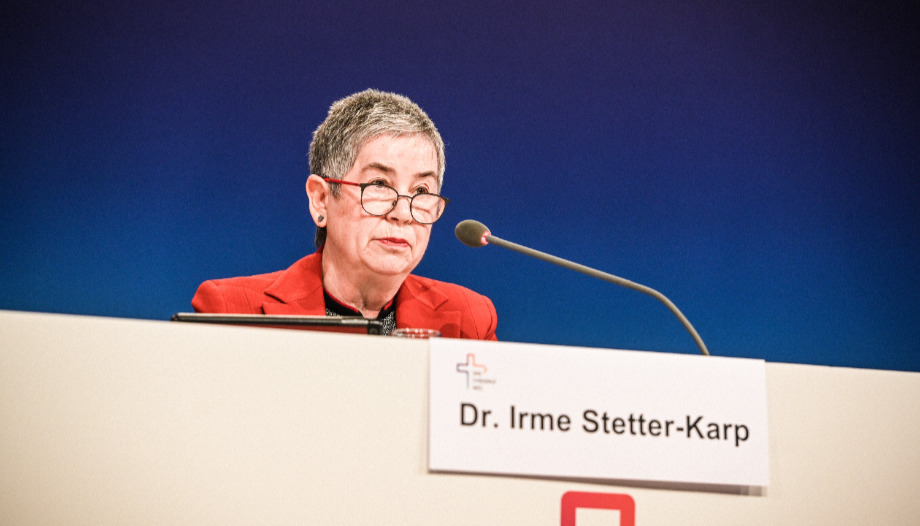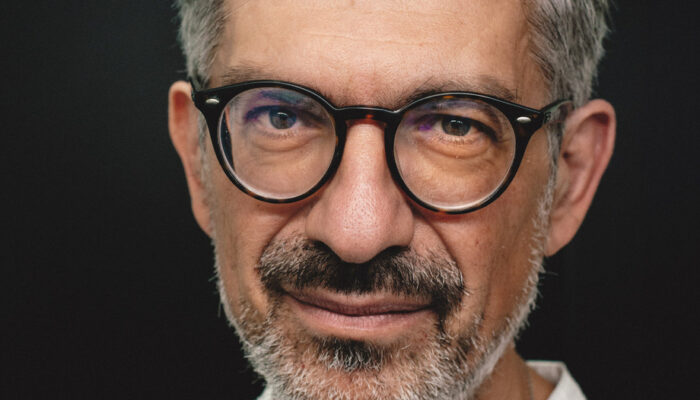The German Synodal Path concluded its fourth Assembly on Saturday evening, September 10, after the very beginning - on Thursday, September 8 - a real sensation, a situation that, from the reactions it provoked, was not in the plans of either the leaders of the Synodal Path or of the immense majority: the first of the texts to be put to the vote, entitled "Basic Guidelines for a Renewed Sexual Ethic" - in reality, a radical change of traditional doctrine following the dictates of "sexual diversity" - did not obtain the required majority among the bishops' votes.
According to the statutes of the synodal process, two qualified majorities are required for final approval of a text: two-thirds of all the votes cast in the assembly, and two-thirds of the votes cast by the bishops. Of the 57 votes cast by bishops, 31 voted "yes" and 22 "no"; 3 abstained.
After the first moment of bewilderment, a practically unbearable pressure began to be put on the bishops who had voted against. In tears, the co-president of the synodal path, Irme Stetter-Karp, reproached them for not having taken the floor in the debate to make their position clear; a somewhat fallacious argument, since whoever has attended previous Assemblies knows that whoever dared to express a minority opinion - defending Tradition and the doctrine of the Church - was the object of murmurs of disapproval and even booing. Moreover, as Cardinal Rainer Woelki of Cologne said in a speech, a group of that minority - led by Bishop Rudolf Voderholzer of Regensburg - had time and again presented alternative documents, available on the Internet, which, however, were never taken into account.
Pressure on the synodal path
At the press conference early in the morning of Friday the 9th, Irme Stetter-Karp, who is also president of the Central Committee of German Catholics, further increased the pressure on the "dissident" bishops and accused them of pursuing a "blocking strategy". She even hinted at an ultimatum: if the blockade continued, the Central Committee would leave the Assembly.
In order to get out of the "crisis", several measures were taken: on the one hand, the time for each intervention was increased from one to two minutes, in order to make it easier for those who were against a certain text to express their objections; in addition, the president of the Bishops' Conference and co-chairman of the synodal process, Georg Bätzing, met with the bishops behind closed doors. As a result, a very large number of bishops took part in the discussion of the basic text "Women in Church Services and Ministries" without the expressions of disapproval that had been customary in previous assemblies.
Intimidation
Two other circumstances contributed to the approval of the text, also by the bishops. On the one hand, a measure of intimidation: the requirement that the votes be taken by roll call - with the corresponding publication on the Internet - and, on the other hand, that the tone of the document was somewhat toned down; Thus, this text on women in the Church is now presented not as a demand for priestly ordination for women, but as a "consultation with the supreme authority of the Church (Pope and Council)" as to whether the doctrine of "Ordinatio sacerdotalis" of John Paul II (1994), in which the Pope established as definitive doctrine the impossibility of the ordination of women in the Catholic Church, can be revised.
Thus, the text was approved with only 10 votes against (and 5 abstentions) of the 60 bishops present. Even so, the rest of the document - the tone of which is reflected in the remark with which it was introduced: "what needs to be argued is not why women can be ordained, but why they cannot" - continued to maintain the same literal tenor.
New synod council
Something similar also happened on the morning of Saturday the 10th when an "action" text on the erection of a Synodal Council for the whole of Germany was discussed, with the aim of giving continuity to the synodal journey. According to the text presented, its function would be to coordinate the work of the Bishops' Conference and the Central Committee of German Catholics. This Council would openly confront the note from the Holy See last July, which recalled that the synodal path "is not empowered to oblige the bishops and the faithful to adopt new forms of government".
A compromise formula was then reached: instead of approving the creation of a Synodal Council, it was a matter of voting on a "synodal commission" in charge of preparing it: "we are not making any final decision today"; both the Bishop of Eichstätt, Gregor Maria Hanke, and the Bishop of Görlitz, Wolfgang Ipolt, strongly recommended studying the document of the International Theological Commission on the Synodal Council. synodality and referred to the fact that "what is important, above all, is that we discover the spiritual part of synodality and deepen it". During the vote, the bishops were struck by the high number of abstentions: 10; only 6 voted against, compared to 43 in favor.
Promoting a new sexual ethic
On the other hand, the fact that the fundamental text on renewed sexual ethics was rejected does not seem to have any practical consequences either. Bishop Georg Bätzing announced that - despite the vote against it - he would bring the text, "as a result of the work of the synodal journey," to the "level of the universal Church," namely to the ad limina visit in November in Rome and to the continental meeting of bishops in view of the Synod of Bishops on synodality in January.
He also announced that the Bishops' Conference would discuss this text at its ordinary assembly at the end of September, and also that he would use it in his own diocese, Limburg, which was also announced by the Bishop of Dresden, Bishop Heinrich Timmerevers. However, Bishop Stefan Oster of Passau expressed his surprise and disagreement: "I wonder if you are not anticipating something that was always foreseen in case there were no majorities"; if this were the case, "each diocese would go its own way and we would end up with the division that we wanted to avoid".
In addition, on Saturday, three texts related to the "new sexual morality" were approved - in first reading, so that the final decision is postponed to its presentation, after several modifications, in the following synodal assembly for its second reading - one of them on "Sexual Diversity" that - according to one of the participants in the assembly, Dorothea Schmidt - "questions the doctrine on creation". However, none of the bishops present made a critical intervention on the matter. In approving this text, the synodal assembly urges all dioceses to appoint "LGBTI*" ministers to "sensitize" the faithful to issues of sexual diversity. They also ask the Pope to "open to transsexual persons all ministries linked to ordination".
It should be noted that these "action" texts should not have been voted on, since the basic text from which they emanated - "Basic Guidelines for a Renewed Sexual Ethics" - had been rejected on Thursday afternoon. Although Cardinal Reinhard Marx had warned of this, the Assembly presidency turned a deaf ear to the warning and allowed the vote to proceed.
Homosexual priests
The text "De-tabonization and normalization: on the situation of non-heterosexual priests", also approved in first reading, demands the recognition of non-heterosexual priests and asks the bishops to advocate, at the universal level, the abolition of the ban on the ordination of homosexual priests. Bishop Oster again expressed his skepticism: this text poses a dilemma for the bishops; when they speak about homosexuality and "possibly problematize it" they are exposed to the risk of being seen as an attack on people with a homosexual orientation.
Finally, the Assembly assented, in the first reading, to the text on "Proclamation of the Gospel by women, by word and sacrament," which advocates "opening up" preaching to women, as well as for dioceses to study the possibility of the laity-men and women-administering baptism; the same can be said of marriage.
Before this vote, five participants of the Assembly formally requested that the vote be taken by secret ballot, in accordance with the statute of the synodal way; according to this, in this case, the vote must be by secret ballot. However, the presidency of the Assembly overruled this request, citing an ad hoc "interpretation" of the statute, forcing the vote to be taken by roll call. Marianne Schlosser, Professor of Theology at Vienna and winner of the Ratzinger Prize for Theology, was "outraged" by the authoritarian way in which this decision was made; immediately after the vote, she left the Assembly.
At the end of the Assembly, Irme Stetter-Karp returned to speak about the bishops; with a certain air of smugness, she said: "It is positive that the bishops have understood that the situation was serious; but they could have expressed their opinion earlier". And, looking ahead to the Synodal Council: "We are ready to make difficult decisions together with the German bishops".
The fifth -and foreseeably last- Synodal Assembly will be held in March 2023.
* Text updated at 5:22 pm.








